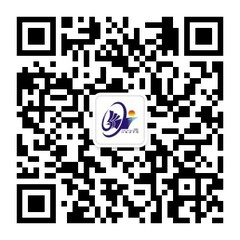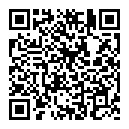In order to more comprehensively improve the students' language application ability, data analysis ability, translation research level and practical operation ability, and deeply integrate into the training system of interdisciplinary literacy, the College of Foreign Languages has carefully planned the 2024 Shanghai Maritime University Language, Data and Translation Academic Training Camp, which is scheduled to be held from September 9 to September 15, 2024. It aims to open a new chapter in the field of foreign languages, literature and translation for students through the deep integration of a series of cutting-edge technologies and practical projects, especially to demonstrate the vigorous development prospects and unique advantages of Shanghai Maritime University in this field.
The opening ceremony and the first lecture
In the early morning of September 9, with the sunshine filling every corner of Lingang Campus, an academic feast was officially kicked off in B301 of Aviation Section Building. On the first day of the event, Professor Serge Sharoff from the University of Leeds, an internationally renowned scholar, was invited as the opening guest. Through a combination of online and offline methods, excellent students from all over the world were attracted to gather together. With his profound academic atments and rich practical experience, Professor Sharoff gave a wonderful lecture on corpus technology and its innovative application in language research.

Picture 1 Professor Sharoff is having a class
Dive into the world of corpora and explore the mysteries of language
At the beginning of the lecture, Professor Sharoff opened the mystery of corpus one by one from the perspective of vocabulary, not only traced the development process of corpus, but also elaborated its significance as an important tool for language research. He skillfully uses multiple sets of case data to visually demonstrate the concept of word frequency and its key role in language analysis, and leads the participants to think about how word frequency lists can contribute to translation practice and academic research. By comparing the word frequency changes of different words, Professor Sharoff further discussed the application prospects of word frequency analysis, and stimulated the students' interest in future research directions.

Picture 2: Professor Sharoff is giving a class
Collection's charm, practical operation of Sketch Engine
Then, the lecture explored in depth the phenomenon of collocations in language communication. Professor Sharoff analyzed the cultural implications and pragmatic functions behind phrase collocations through vivid and specific example sentences, and stressed the importance of collocations in improving the accuracy and idiomatic translation. He also personally demonstrated how to use the advanced tool of Sketch Engine for word frequency comparison, so that the students could intuitively feel the powerful power of technology-assisted language research.

Picture 3: Professor Sharoff is giving a class
Data Science and Python Programming: A New chapter in language research
In the afternoon, the lectures are more focused on the exploration of interdisciplinary integration. Professor Serge seamlessly moved into the field of data science and explained in detail the application strategy of the Python programming language in corpus research. He personally led the students to conduct practical exercises, turning the class into a programming experience class, encouraging everyone to try their hand, analyze corpus data with Python scripts, and experience the whole process from data collection, cleaning to analysis. The students were enthusiastic, actively asked questions and discussed warmly, and the scene was full of a strong academic atmosphere and a spark of innovation.

Picture 4: Professor Sharoff instructing students
Harvest and prospect
The successful conclusion of the first day of the lecture not only allowed the students to have a deeper understanding of corpus, linguistics, data science and their mutual relations, but also stimulated their strong interest in interdisciplinary research and unlimited imagination. In the next few days, the training camp will continue to focus on the three core areas of language, data and translation, and build a learning platform combining theory and practice for students through various forms such as symposiums, workshops and case studies, so as to help them break the wind and climb the peak in their future academic and professional careers.
(Reported by the College of Foreign Languages office; Translated by Shi Ying)


